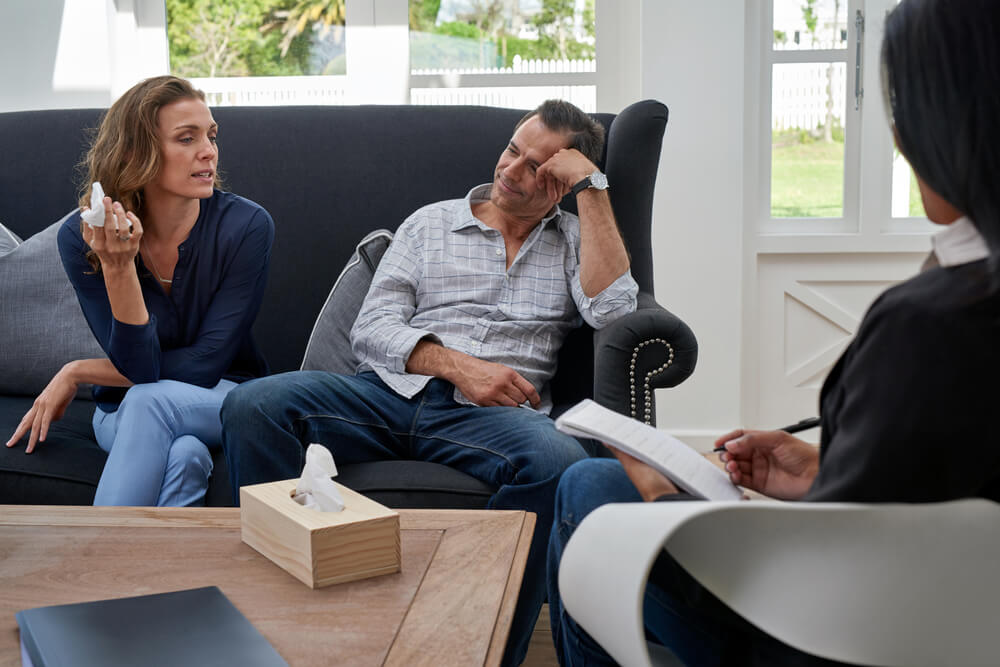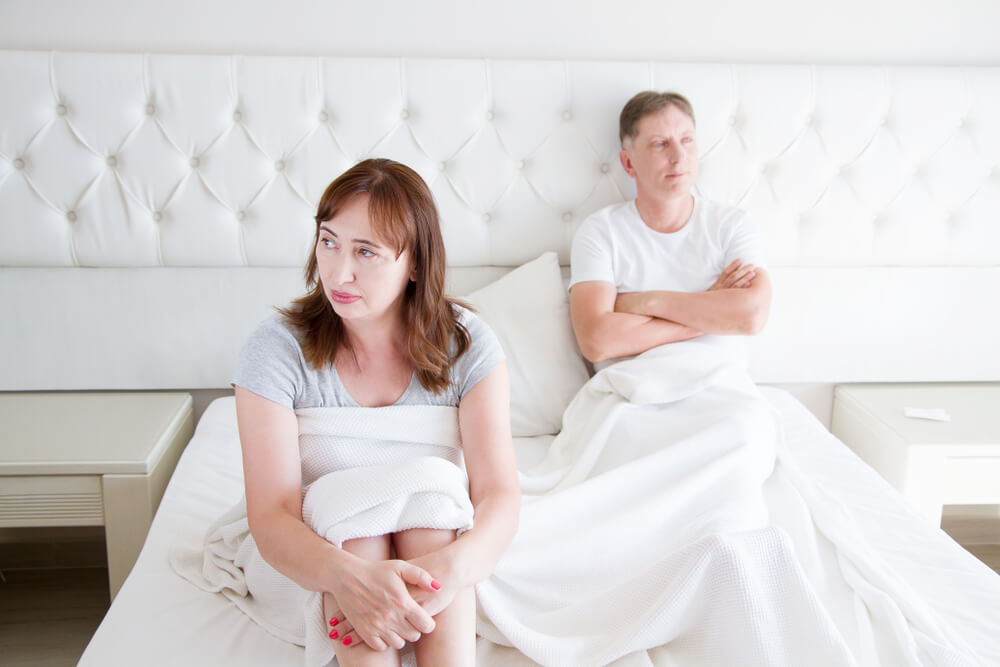As women approach menopause, they may notice a decrease in their libido. This is due to the many changes that occur in the body during this time. Most notably, the level of estrogen and progesterone drops significantly. Thus, menopause and libido go hand in hand, as the drop in hormones causes a loss of interest in sex.
To help you navigate this new chapter in your life, this article will cover the known effects of menopause on libido and show you some ways you can deal with it.
Menopause and Libido: The Question of Progesterone & Estrogen
During a woman’s lifetime, progesterone and estrogen manage her reproductive system. They are also responsible for maintaining other aspects of her health, such as bone density and cholesterol levels. As women approach menopause, the levels of these hormones drop significantly.
This decrease in hormones is what leads to many of the symptoms associated with menopause, including a decreased libido. This is because progesterone and estrogen play an crucial role in sexual desire. They help to increase blood flow to the genitals and promote lubrication.
Menopause effects on libido can also lead to a number of changes that make sex less enjoyable. These include vaginal dryness, hot flashes, and night sweats. All of these symptoms can make sex less appealing for women everywhere.
When Should You See a Doctor?
If you are experiencing a significant decrease in your libido, don’t hesitate to visit Women’s Care of Bradenton. There may be an underlying cause that needs to be addressed. Additionally, there are many treatments available that can help improve your libido during menopause.
Be Prepared For The Talk With Your Doctor

The topic of menopause and libido can be difficult to discuss. However, it is important to be open and honest with your doctor about how you are feeling. Our friendly experts, such as Dr. Jothi will do their best to listen and provide you with the best possible care.
It helps to be specific about your sexuality after menopause and give examples of other things you’re not sure how to deal with. As well as that, come prepared with questions. This will show your doctor that you’re taking the issue seriously and are interested in getting help.
Additionally, you should know what questions to expect from your doctor. While every woman experiences menopause differently, the doctor will probably ask you general questions about your menopause sex drive to get a sense of what you’re going through. You should be able to describe your symptoms and how they’re affecting your life, as well as tell them what treatments you’ve already tried.
Treatment Options
Just because you’re entering this new stage of life doesn’t mean that you have to give up on your sexuality after menopause. There are a number of different treatment options available to help you treat it.
Should You Consider Hormone Replacement Therapy (HRT)?
HRT is a common treatment for lessening the effects of menopause on libido. It involves taking estrogen and progesterone supplements to help restore the levels in your body back to what they were before menopause. This can help improve your libido, as well as other symptoms like hot flashes and dryness.
To know if HRT is right for you, speak with your doctor about the risks and benefits.
Can Herbal Supplements Help Restore Menopause Sex Drive?
There are many herbal supplements on the market that claim to help improve menopausal symptoms, including a decreased libido. However, it is important to speak with your doctor before taking any of these supplements, as they may interact with other medications you’re taking.
Some of the most common herbal supplements for menopause include black cohosh, red clover, and maca root.
Can Lifestyle Changes Give You Back Your Sexuality After Menopause?
In addition to hormone therapy, there are also some lifestyle changes you can make to help improve your libido during menopause. These include:
- Eating a healthy diet: Eating a diet rich in fruits, vegetables, and whole grains can help improve your overall health, which may also help improve your libido.
- Exercising regularly: Exercise can help increase blood flow to the genitals, which may help improve sexual arousal.
- Managing stress: Stress can contribute to a decrease in libido. Finding ways to manage your stress, yoga or meditation can be helpful.
- Quit smoking: Smoking can damage the blood vessels and reduce blood flow to the genitals, which can lead to decreased libido.
- Limit alcohol intake: Drinking too much alcohol can also lead to the decline in your libido.
Making these lifestyle changes isn’t a guaranteed way to reverse menopause effects on libido, but it’s definitely worth trying. Remember that what works for one woman may not work for the other. However, these changes can still help you improve your general health and maybe even subdue some other symptoms of menopause.
Communicate With Your Partner
One of the best ways to deal with decreased libido is to communicate with your partner. Tell them about your new low menopause sex drive and figure out together how they can help support you. They may also experience a decrease in their libido, so communicating with them is key.
This can help you feel less alone and lessen the pressure to have sex. Communication is key for functional and healthy relationships, and sex is definitely part of that.
Use a Lubricant
To help make sex more comfortable and increase your interest in this activity, you should use a lubricant. Vaginal dryness is natural and many women experience it regardless whether they’re going through menopause or not. However, menopausal women can benefit from high-quality lubricant even more.
Make sure that you get water-based lubricant, though, as it can be the safest for your health. While it may be enticing to try out special or flavored lubricants, they can cause yeast infections and dry out quickly, thus making the experience even more uncomfortable.
Try Kegel Exercises
Kegel exercises are one of the most effective ways to improve your overall sexual health, and they can also help increase your libido. These exercises strengthen the pelvic floor muscles, leading to more pleasurable sensations during sex.
To do a Kegel exercise, simply contract the muscles you would use to stop urinating. Hold for a count of three, and then relax for a count of three. Repeat this ten times, three times per day.
Consider Starting Therapy

One of the best things you can do to deal with low sex drive during menopause is to start therapy. This will give you an outlet to talk about the changes you are experiencing and how they are affecting you. Additionally, your therapist can help you develop coping mechanisms for dealing with a decreased libido.
Let’s not forget that a therapist can help you navigate other significant feelings you may be having around this new stage in your life. We all need a little support now and then, and talking to a professional can provide that safe space that helps you understand your feelings better.
Conclusion
Menopause can be a difficult time for many women. However, it is important to remember that you are not alone. There are many resources available to help you through this transition. Additionally, there are many ways to improve your libido during menopause.
What are your thoughts on this article? Have you already tried these treatment options? Call us at (941) 500-3100 to book your next appointment and discuss the next steps.


